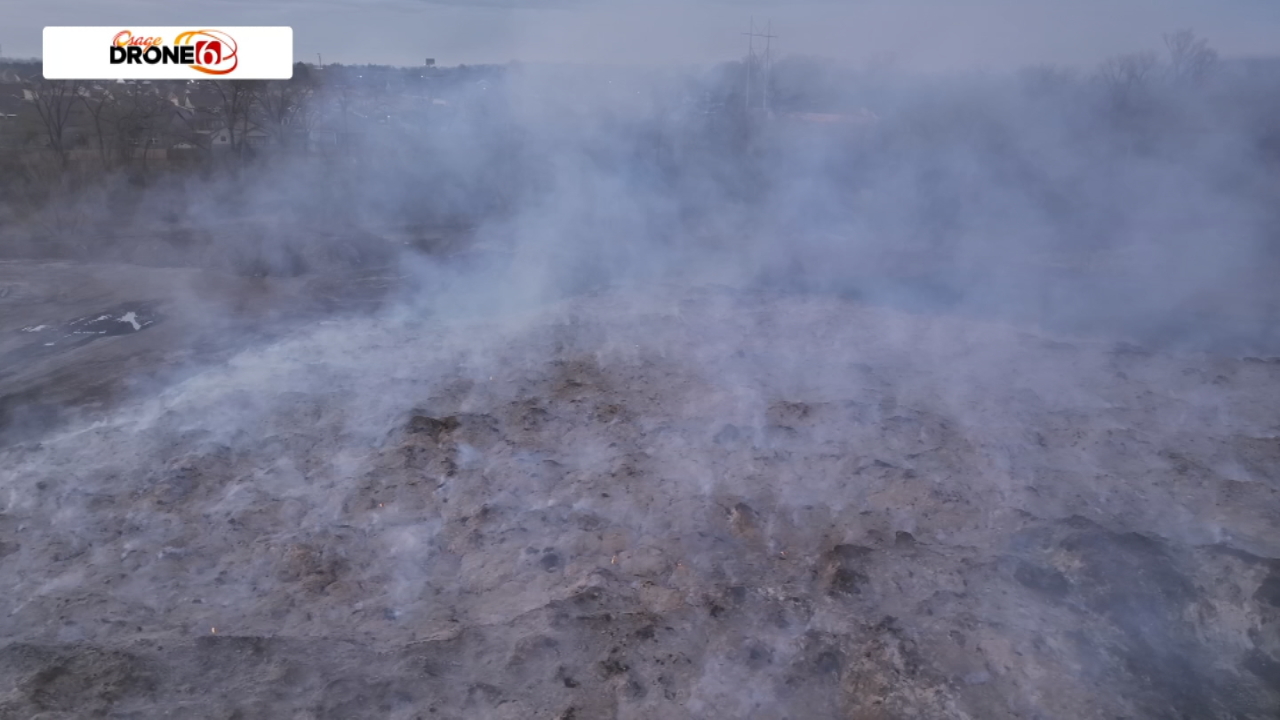Tulsa's Growing Homeless Population: A Frontline Report From The Tulsa Day Center

Table of Contents
The Rising Numbers and Contributing Factors
The Tulsa homeless population is experiencing a significant upward trend. While precise numbers fluctuate depending on the methodology and time of year, consistent reports from local government agencies and organizations like the Tulsa Day Center confirm a substantial increase in recent years. This alarming growth is fueled by a complex interplay of factors:
Economic Hardship and Unemployment
Economic instability is a primary driver of homelessness. In Tulsa, as in many cities, low wages, job losses, and the escalating cost of living create a perfect storm.
- Industries Affected: Recent economic downturns have disproportionately impacted sectors like manufacturing, hospitality, and retail, leaving many Tulsans without stable employment.
- Minimum Wage and Cost of Living: Oklahoma's minimum wage remains relatively low, making it difficult for individuals and families to afford basic necessities like rent and food, especially considering the rising cost of living in Tulsa.
- Affordable Housing Crisis: The availability of affordable housing in Tulsa is severely limited, leaving many vulnerable to homelessness when facing financial hardship. Long waiting lists for subsidized housing exacerbate the problem.
Mental Health and Addiction
Mental illness and substance abuse significantly contribute to the Tulsa homeless population. Many individuals experiencing homelessness struggle with untreated mental health conditions or addiction, hindering their ability to secure and maintain stable housing and employment.
- Prevalence of Mental Illness: A substantial percentage of the homeless population suffers from untreated mental illness, often exacerbated by the stresses of homelessness itself.
- Access to Mental Healthcare: Limited access to affordable and accessible mental healthcare services further compounds the issue, leaving many without the support they need.
- Opioid Crisis: The ongoing opioid crisis in Tulsa and across the nation has devastating consequences, often leading to job loss, family breakdown, and ultimately, homelessness.
Domestic Violence and Lack of Safe Housing
Domestic violence is a tragic factor driving many individuals and families into homelessness. The lack of safe and affordable housing options further complicates the situation, leaving victims with few alternatives.
- Domestic Violence Statistics: Oklahoma has a sadly high rate of domestic violence, leaving countless victims vulnerable and without a safe place to live.
- Limited Shelter Capacity: While domestic violence shelters exist, their capacity is often limited, resulting in long waiting lists and a lack of immediate refuge for those in need.
- Housing Barriers: Even after escaping abusive situations, finding affordable and safe housing remains a significant challenge for survivors of domestic violence.
The Tulsa Day Center's Vital Role
The Tulsa Day Center plays a crucial role in mitigating the effects of homelessness in Tulsa. It serves as a lifeline for countless individuals, offering a wide range of essential services:
Providing Essential Services
The Center provides a safe haven, offering shelter, nutritious meals, and access to vital resources.
- Daily Operations: The Tulsa Day Center offers daily services such as showers, laundry facilities, and a place to rest and connect with others.
- Healthcare Access: The center facilitates access to medical care, including health screenings, referrals to specialists, and assistance with obtaining medications.
- Job Training and Placement: The Center provides job training programs and assists individuals in finding and securing employment, building a path towards self-sufficiency.
Addressing Underlying Issues
The Tulsa Day Center goes beyond immediate needs, offering case management services designed to address the root causes of homelessness.
- Individualized Support: Case managers work closely with each individual to develop personalized plans addressing their unique needs, whether it's securing housing, mental health treatment, or job training.
- Community Partnerships: The Center works collaboratively with other organizations providing healthcare, substance abuse treatment, and other essential support services.
- Success Stories: Through dedicated efforts, the Tulsa Day Center boasts numerous success stories of individuals transitioning out of homelessness and into stable housing and employment.
Advocacy and Outreach
The Tulsa Day Center actively advocates for policy changes and increased resources to combat homelessness at the city and state levels.
- Legislative Advocacy: The Center advocates for policies that increase affordable housing options, expand access to mental health services, and provide funding for homelessness prevention programs.
- Community Engagement: The Center actively participates in community initiatives and collaborates with local government agencies to address homelessness collectively.
- Raising Awareness: The Center works to raise public awareness about the causes and consequences of homelessness, promoting understanding and compassion within the community.
Challenges and Future Needs
Despite its significant impact, the Tulsa Day Center faces ongoing challenges:
Funding and Resource Gaps
The Center relies heavily on donations and grants, facing persistent funding limitations and resource gaps.
- Budget Constraints: The annual budget often falls short of meeting the ever-increasing demand for services.
- Funding Needs: Increased funding is crucial to expand programs, hire additional staff, and meet the growing needs of the Tulsa homeless population.
- Seeking Donations: The Center actively seeks donations from individuals, corporations, and foundations to support its essential work.
The Need for Affordable Housing
The critical lack of affordable housing in Tulsa significantly hinders efforts to address homelessness effectively.
- Housing Shortage: A severe shortage of affordable housing units prevents many individuals from transitioning out of homelessness.
- Policy Recommendations: The Center advocates for policies that incentivize the development of affordable housing and protect tenants' rights.
- Long-Term Solutions: Addressing the affordable housing crisis is vital for sustainable solutions to homelessness in Tulsa.
Community Support and Collaboration
Addressing the complex issue of homelessness requires a united front. Community support and collaboration are paramount.
- Volunteer Opportunities: Individuals can volunteer their time and skills to assist the Center with various tasks.
- Corporate Partnerships: Local businesses can partner with the Center to provide job training, internships, or in-kind donations.
- Community Involvement: Active community participation through awareness campaigns, fundraising events, and advocating for policy changes is crucial.
Conclusion
The Tulsa homeless population is rapidly growing, demanding a multifaceted and comprehensive response. The Tulsa Day Center plays an indispensable role in providing essential services, addressing underlying issues, and advocating for change. However, the ongoing challenges of funding limitations, the lack of affordable housing, and the complex social issues contributing to homelessness require a sustained and collaborative community effort. We urge you to join us in this fight. Volunteer your time, donate generously, or advocate for policies that support the homeless community in Tulsa. Let's work together to create a more compassionate and supportive city for everyone. Visit the Tulsa Day Center website ([insert website link here]) and donate today ([insert donation link here]) to help us address the growing Tulsa homeless population and build a brighter future for our community.

Featured Posts
-
 The Reason Behind Chris Columbuss Departure From The Harry Potter Franchise After Chamber Of Secrets
May 02, 2025
The Reason Behind Chris Columbuss Departure From The Harry Potter Franchise After Chamber Of Secrets
May 02, 2025 -
 Actress Priscilla Pointer Carrie Co Star Passes Away At Age 100
May 02, 2025
Actress Priscilla Pointer Carrie Co Star Passes Away At Age 100
May 02, 2025 -
 Xrp Price Prediction 2024 Boom Or Bust After Sec Case
May 02, 2025
Xrp Price Prediction 2024 Boom Or Bust After Sec Case
May 02, 2025 -
 Italys Little Tahiti Powdery White Sands And Turquoise Waters
May 02, 2025
Italys Little Tahiti Powdery White Sands And Turquoise Waters
May 02, 2025 -
 Tuerkiye Endonezya Anlasmalari Gelecege Yoenelik Is Birligi
May 02, 2025
Tuerkiye Endonezya Anlasmalari Gelecege Yoenelik Is Birligi
May 02, 2025
